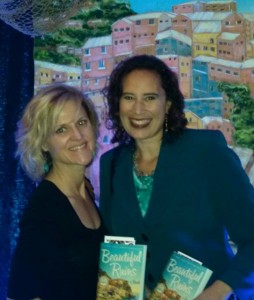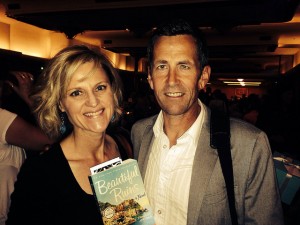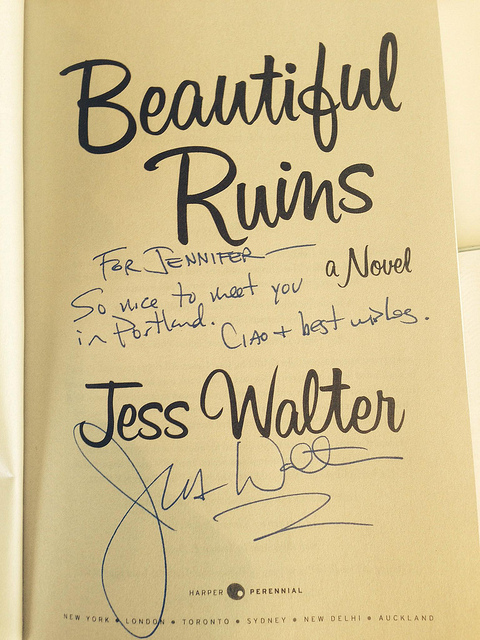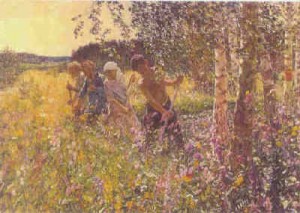This summer, like everyone else on the planet, I succumbed to the hysteria and read The Fault in Our Stars. I laughed, I cried, I was moved. I really liked this book–except when I hated it. I know hate is a strong word and good people aren’t supposed to use it, but look: it’s a lot more fun to write about what I hate than to write about what I deeply dislike. You get me.
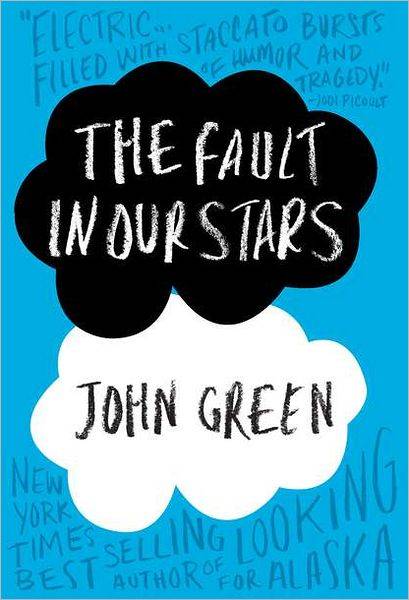
So, here is what I hated (ooh, that’s a rush!) about The Fault in Our Stars:
- I hated, hated, hated that they slept together. Wait, “sleeping together” is a euphemism that muddles the facts on this issue. Let me rephrase: I hated that these two minor children went to a hotel room and had sex with each other. I know it was “AugustusandHazeltheCoolest,” I know they were superduper In Love, and I know that they were both soon to be taken by cancer and thus needed to experience the joys of the flesh before returning to the dust of the earth. But really: wasn’t it still teen sex? What’s more, I hated the writer’s seduction of the reader, so that by the time they reached this point in the story, they were happy for the teen sex. (After all, where is YOLO more applicable than to two dying cancer patients?)
I hated the subtle but powerful message that 1) teen sex is okay (no, commendable!) as long as you’re In Love, 2) being In Love and Having Cancer makes it extra-okay, and 3) Being In Love, Having Cancer, and being Smart/Witty/Just Generally Cool makes it extrasuper okay. Subtract the witty dialogue, subtract the heartwrenching illnesses, subtract the dire circumstances, and you still have teen sex, and it’s still wrong. And I hate that now this same message has been plastered on the big screen. I realize that teen sex is so common in the media that we barely bat an eye anymore, but maybe that’s the problem. Maybe we need to get a little more indignant when it’s served up like popcorn to our already hormone-soaked children.
- I hated how ridiculously articulate these kids were for their age. Okay, I get the author’s angle: snappy dialogue makes for much better reading than the standard “dude, like, whatever” of teen speech. However, even the most verbally gifted teens (or adults, for that matter) do not constantly wax poetic the way these young folk did. And though it did make for dynamic characters, it also made the characters seem much older than they were, which led us straight to Problem #1.
In the author’s defense, he is writing for a teen audience, and most teenagers actually see themselves as this insightful and articulate—they just can’t, um, articulate how, like, articulate they are. And so August and Hazel give their adolescent audience a voice (i.e., that’s what I was gonna say!) And while the advanced dialogue is entertaining, it’s a too-common thread, too frequently woven, in the cultural cloth that blurs child- and adulthood. (See Problem #1.)
- I hated how, through all the talk about dying, living, and loving, the idea of an afterlife or even (gasp!) diety was clearly absent. Facing imminent death would, I imagine, force the Question of the Ages even upon two “intellectuals” like Hazel and Augustus. There is one scene at the book’s end wherein Hazel sees children playing outside and has a warm fuzzy about the circle-of-life-in-general, and there are a couple short references to “not knowing” about a hereafter, but that’s about it.
This irked me because Augustus and Hazel are portrayed as the ultimate I.Q. studs, and so their ignorance of all things religious is conspicuous and, in my opinion, unrealistic. I’ve always noticed that thoughtful people (like Hazel and Gus) tend to think about the larger questions of existence, which leads them to at least contend with the concept of religion. But popular culture has written a narrative in which intellectualism (put a big fat “psuedo” in front of that) and religious belief cannot coexist. And Green’s story strictly follows that narrative; these poor souls were zooming toward death’s door without an iota of interest in what might lie behind it. Regardless of one’s family culture, it seems like the questions would have come up.
It would have been splendidly refreshing to see our heroes, at their life’s end, wrestle with religion, or even the vaguer notion of “faith.” Even if they concluded a disbelief, chewing on the possibility would have lent authenticity to their plight; it’s what most people facing death do. But alas, in this book, nothing. Sad. And so predictable.
And now for the fun part of my post, ’cause this is what I loved about The Fault in Our Stars:
- The writing. It was sharp, interesting, original, and oh-so-readable. John Green is a genuine talent.
- The plot. Two cancer victims in a doomed relationship? Green makes it work. Bittersweet in the best sense; sincere but never saccharin.
- The parents. I loved (loved!) how tenderly, positively portrayed the parent-child relationships were in this book. The parents loved their children and the children loved their parents, and their hearts broke constantly for one another. No dark issues, no raging resentments. Talk about splendidly refreshing.
- Hazel and Augustus. Loved them both. Despite their inflated oratorial skills, the character development here was outstanding. You meet them, you hang with with them, you love them, you are devastated for them. Which is why this young adult book makes grown-ups cry.
And though I scathed some of the messages in this book, I loved some of the others, like how love as a youth can be as real and meaningful as love as an adult. I believe that. (But it still doesn’t justify Problem #1.) I also loved the message that a girl with tubes in her nose can still be beautiful to the boy who loves her. We need more of that.
Conclusion: The Fault in Our Stars is just one more twisted, emotionally confusing puzzle in a long line of puzzles that my brain will have to sort out while while I’m doing laundry.
What did you think? Did you read it? Are you going to? Tell me. (No wrong answers here. I won’t judge you if you loved the “love” scene.) (Well, I might judge you a little. But don’t worry, I won’t say so on this blog.)
